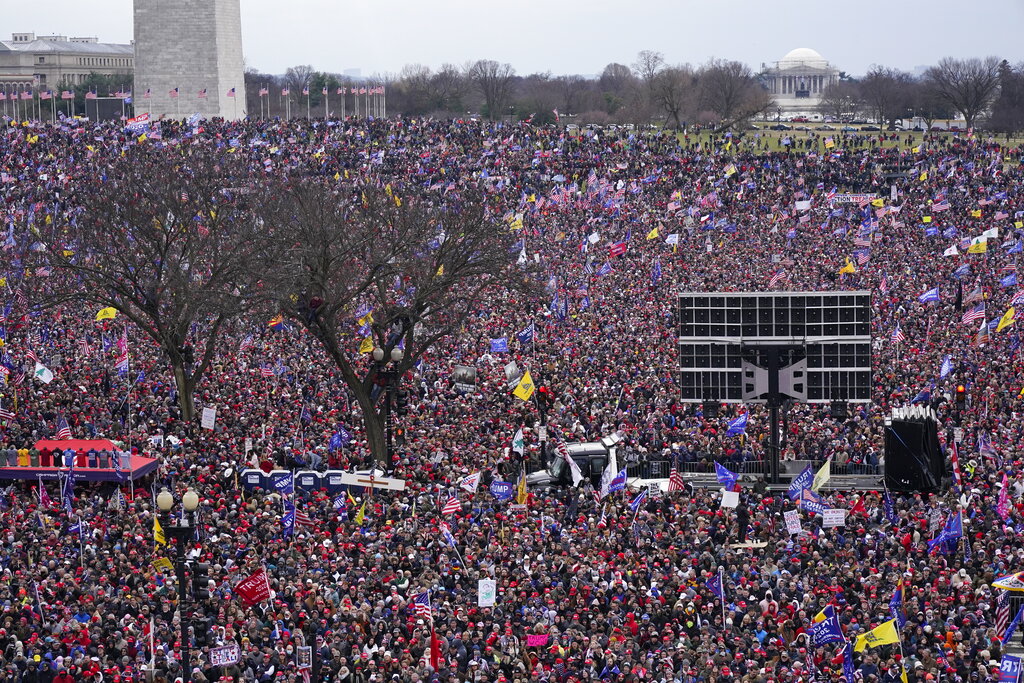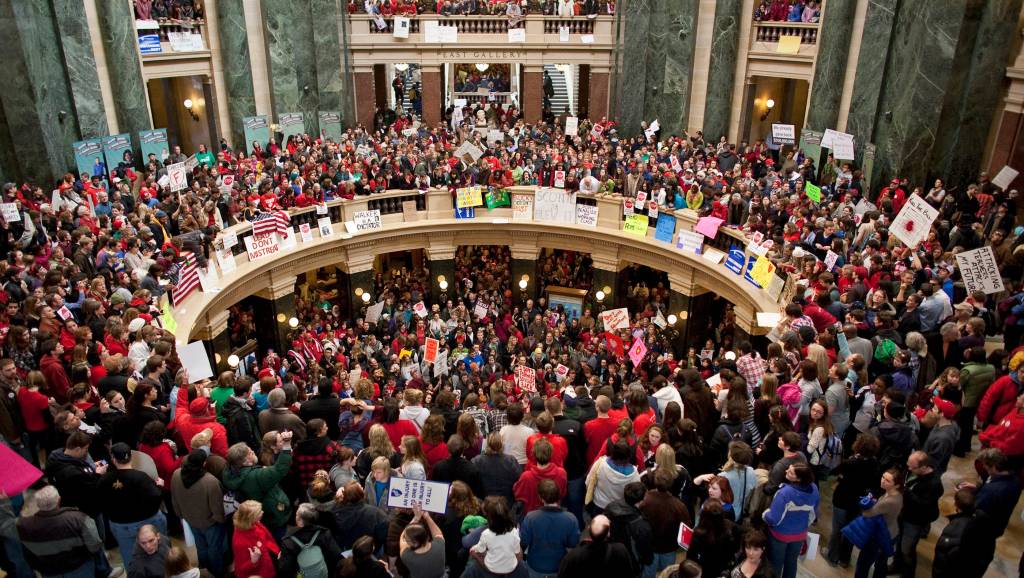Congress shall make no law respecting an establishment of religion, or prohibiting the free exercise thereof; or abridging the freedom of speech, or of the press; or the right of the people peaceably to assemble, and to petition the Government for a redress of grievances. —the First Amendment to the United States Constitution.
As Democrats have done in several past elections over the decades, Republicans disputed the November 3, 2020 election that resulted in a loss for Donald Trump. There is a constitutional process by which such disputes can be resolved. Congress was in the midst of that process when proceedings were disrupted by citizens entering the Capitol building. In the end, the disruption prevented the process from proceeding and Biden was determined to have won enough electors to assume the Office of President.
Prior to that disruption, the President spoke at a rally that occurred entirely within the parameters of the First Amendment. I am not defending the violent actions of the handful who broke the law on January 6, 2021. I do, of course, wish to see their civil liberties and rights protected. However, this essay is a defense of the right of the President of the United States and his supporters to peaceably assemble and petition the government for a redress of grievances. Conflating the peaceful rally with the riot at the Capitol is an attempt to delegitimize the exercise of First Amendment by those the establishment considers its enemies.

This is protected speech: “We fight like hell. And if you don’t fight like hell, you’re not going to have a country anymore.” This is not incitement to violence, even if these words were not in association: “I know that everyone here will soon be marching over to the Capitol building to peacefully and patriotically make your voices heard.” However, certainly those words make obvious the meaning of “fight” in this context: this was (and is) an argument, a conflict, a confrontation, a contest, a disagreement, a dispute, a quarrel, a struggle. We all know this is what the President meant when he uttered these words at the January 6, 2021 rally in the nation’s capitol.
By conflating the massive January 6 rally, a paradigm of activities protected by the First Amendment, with the much smaller crowd that entered the Capitol building, some of whom engaged in activities not covered by the Constitution (most peacefully ambled about the premises), many of them languishing in Washington DC jails denied their right to habeas corpus, the Democrats and the Republicans who have joined them are effectively declaring that the applicability of the First Amendment depends upon who is exercising those rights.

The conflation is embodied in the impeachment brief authored by Democrats, which claimed that Trump “summoned a mob to Washington, exhorted them into a frenzy, and aimed them like a loaded cannon down Pennsylvania Avenue.” In light of the violent mob action in Washington DC, June 2020, repeatedly portrayed as “peaceful protest” by corporate state media and the Democratic Party, the message was clear: if you are progressive, then you are allowed to exercise your First Amendment right in a myriad of ways not covered by the First Amendment.

If you are a progressive, you are even allowed to occupy buildings. Don’t believe me? What about Madison, Wisconsin 2011? Did you forget that thousands of progressives occupied the Wisconsin State Capitol building for several days. (Did you miss my January 10th, 2021 essay on that? See The Relative Ethics of Occupying Capitol Buildings.) But, if you’re a conservative or a populist, then you are by definition a mob and the First Amendment doesn’t apply. You’re peaceful protests will be conflated with the violent actions of a handful of people who may or may not have been associated with your rally—who may or may not have been part of an “insurrection.”

This is not how rights works. A right is not available to some and not others. Exercising one’s rights to assembly and speech do not dependent upon the political or religious character of their contents. A right is universal and inalienable. The First Amendment concerns such rights. Each and every individual is entitled to them. The January 6 Commission is a project to deny the “deplorables,” that is those who support Donald Trump those rights established by the United States Constitution. This project dovetails with the greater countermovement by progressives to suppress the populist-nationalist movement, see, for example, is the systematic weakening of electoral integrity.
* * *
By the way, if you didn’t see in the text messages from January 6, 2021 that Liz Cheney publicly released in bad faith, that those around Trump, including White House Chief of Staff Mark Meadows, were surprised by the behavior of some of those in Washington DC that day, then you missed the most important thing about those text messages.
